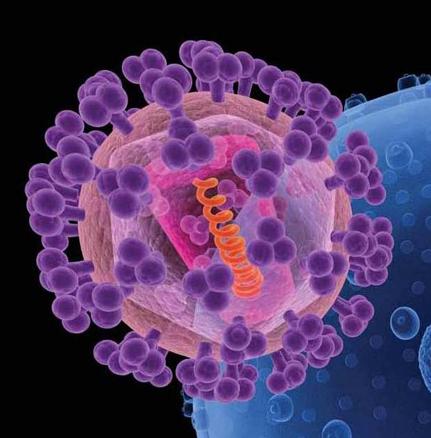Truvada is a pill that people who are HIV negative can take to decrease their risk of acquiring HIV infection. This is called HIV pre-exposure prophylaxis, or PrEP. Truvada contains two medications, tenofovir and emtricitabine, both of which are also used to treat HIV in people who are HIV positive.

Image/National Cancer Institute
To date, just four cases of possible PrEP failure have been reported in the medical literature or at scientific conferences.
Officials with Public Health — Seattle & King County report a rare case of newly diagnosed HIV infection found to have a virus resistant to both of the medications in the Truvada pill in a King County man.
Director of Public Health’s STD/HIV program, Matthew Golden, MD said the patient likely became HIV infected while taking PrEP. The man reported sex only with other men, and both he and his medical provider indicated that he had consistently taken daily PrEP in the months since his last HIV negative test and prior to testing HIV positive.
Truvada as HIV PrEP is very effective if taken consistently. It reduces the risk of acquiring HIV through sex by over 90%, and perhaps by over 95%. It is also more than 70% effective in preventing HIV infections transmitted through sharing injection equipment. So while it is very effective, like many drugs, it is not 100% effective.
Free shipping both ways on at-home testing kits for HIV. 100% Confidential, 5 Minute Testing. Order now!
Related:
- HIV: New York City patient adherent to PrEP positive with virus
- Dapivirine vaginal ring for HIV prevention found safe and acceptable in US adolescent girls
- Single-Pill, Two-Drug HIV treatment, JULUCA®, receives FDA nod
- HIV investigational vaccine protected monkeys from HIV-like virus: Duke research
- HIV: Charlie Sheen’s disclosure led to uptick in OraQuick sales


The King County case cannot be considered a confirmed case of PrEP failure, since we have only the patient’s self-report that he was taking the medication as prescribed. In the three documented PrEP failure cases to date, the patient’s adherence was independently confirmed through blood levels of the drug tracked over time. In PrEP trials, subjects frequently exaggerated their adherence in comparison to their measured blood levels.